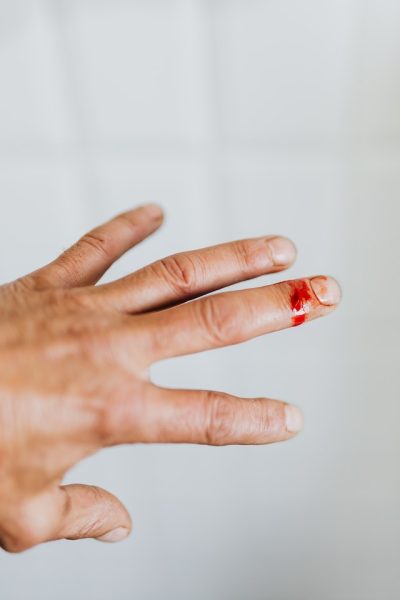
Wounds are a natural part of life. Children get scrapes, adults get cuts and bruises, and everyone gets older and more prone to injuries. When it comes to caring for wounds, it helps to know how the body heals itself so you can assist your body with its natural process as much as possible. In this article you’ll discover some tips for helping your body heal quickly from an injury or other wound.
Eat Healthy Foods
A healthy diet can help your body heal. Eat a balanced diet with lots of fresh vegetables and fruit, lean meat, fish, and eggs. Don’t eat too much sugar or refined carbohydrates because those reduce your immunity and make it harder for wounds to heal. Avoid processed meats that contain a lot of preservatives.
Add in Manuka Honey
Manuka honey is a unique type of honey that comes from New Zealand, where it’s made by bees that pollinate the Manuka bush. It has antimicrobial properties, which means it can be used to treat wounds and infections. If you’re interested in adding this product to your wound-healing regimen, there are a few things you should know.
There are different grades of Manuka honey based on its quality. You’ll want to buy the highest grade for maximum effectiveness.
Enjoy More Vitamin C
Vitamin C helps tissue grow faster, which in turn means that wounds heal faster. It also stimulates the production of collagen which can aid in wound healing as well. As a powerful antioxidant, vitamin C is essential for healing.
Get More Oxygen
Wounds need oxygen to heal. Along with nutrients and water, oxygen is one of the three main necessities for wound healing. The body can’t heal without oxygen because it needs oxygen to make collagen, which is the building block of skin. If a wound doesn’t get enough oxygen, it won’t be able to produce enough collagen or grow new cells as quickly. You can get more oxygen by being mindful of your breathing, keeping your air quality high, and opening windows when you are recovering from surgery or other injuries that cause wounds.
Focus on Healthy Immunity
Immune system health helps wounds heal faster. The immune system is a major player in the body’s defense against injury. The immune system helps prevent infections, stimulates blood flow and collagen production, and helps your body heal faster. The most important part of your body’s response to injury is inflammation. Inflammation is your body’s way of trying to protect you by killing germs or removing harmful debris from an injured area. Redness, swelling, heat, and pain are all signs of inflammation happening around a wound or cut. Treatments like antibiotics may also help fight off infections that could slow down healing time or make your wound worse.
Reduce Inflammation
Inflammation slows the healing process. Inflammation is a natural process that protects the body from infection and slows down healing. It is a response to injury or infection caused by trauma, chemicals, bacteria, or viruses. Inflammation can cause pain, redness, and swelling in the affected area as well as slowing down wound healing. Anti-inflammatory medications such as ibuprofen or aspirin may help treat inflammation during the healing process but should not be taken regularly without consulting your doctor first.
Keep the Wound Clean
When you have a wound, the most important thing to do is keep it clean. Cleaning wounds helps prevent infection and keeps your skin healthy. Cleaning wounds can be done with soap and water if it’s not too bad, or it may require medical attention with the right amount of hydrogen peroxide or other wound cleaners. Sterile saline is also great for cleaning wounds.
Don’t Smoke
Stop smoking if you need to. Smoking cigarettes is bad for your cardiovascular health. It increases the risk of heart disease and stroke, as well as the risk of cancer. It can also cause emphysema and other lung diseases. In addition to these side effects, smoking has been shown to slow down wound healing in both skin grafting procedures and traditional surgical repairs. This means that if you’re a smoker, it’ll take more time to heal after surgeries or other injuries.

